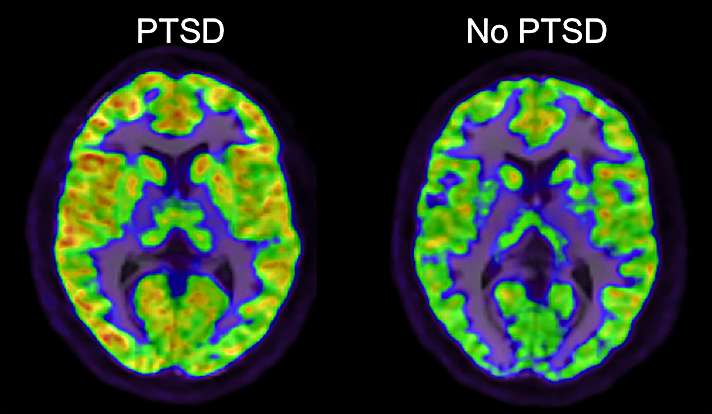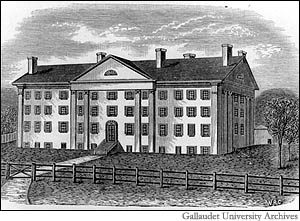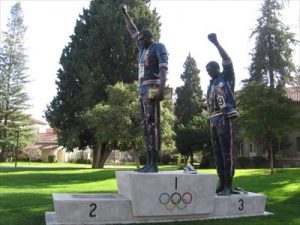Winner of the Fall 2018 StMU History Media Award for
Best Article in the Category of “Military History”
Best Article in the Category of “Science & Technology”
Charles Meyers, a Medical Officer, introduced the term “Shell Shock” to explain symptoms of Post Traumatic Stress Disorder (PTSD) displayed by military after combat in World War I (WWI). Soldiers often experienced symptoms including fatigue, tremor, confusion, nightmares, impaired sight, and impaired hearing. Meyers assumed that these symptoms were caused by the soldiers’ exposure to exploding shells, not necessarily the trauma they were witnessing or going through. In these years, symptoms of widespread PTSD were considered “weak” traits for soldiers by their colleagues and bosses. Even society as a whole started to view these symptoms negatively, which led to the destruction of their relationships after the Shell Shocked soldiers arrived home.1
Military gave Shell Shock victims no sympathy. When soldiers were dismissed from their duties, they were given labels such as “cowardice” or “emotionally weak.” These labels led to soldiers being targeted for abuse from their own side, as well as mock trials in which they were convicted. The pardons they received weren’t honorable, so they were often ashamed of their disorder, which led to more mental issues among the soldiers like depression, anxiety, and even suicide.2

New treatments flipped understandings of how World War I caused drastic changes in the behaviors of these men. Treatment for Shell Shocked victims before Arthur Hurst’s “miracle treatments” were very harsh, as they were often treated with Electroconvulsive Therapy, emotional deprivation, shaming, and solitary confinement. Some of the lesser treatments were hypnosis, massage, rest, and dietary treatments.3
Arthur Hurst primarily used occupational therapy to treat Shell Shocked patients, treating them as humanely and sympathetically as possible. This dignified care allowed for the increased numbers of “saved” soldiers, as they found ways to overcome the abuse and the labels given to them after their dishonorable discharges. Hurst’s treatments became iconic after the Newton Abbott’s Seale Hayne in Devon. Hurst’s approach allowed for 90% of Shell Shocked soldiers to be cured after only a single session.4

Modern day treatments, consist of therapy, as well as new medicines that aid in the control of the symptoms. According to Michael James, a pharmacist, there are Selective Serotonin Reuptake Inhibitors (SSRIs) that block the re-uptake of serotonin in the brain and help with sleep disorders, nightmares, and decreases intrusive thoughts. James also informed me that Serotonin Norepinephrine Reuptake Inhibitors (SNRIs) block the re-uptake of serotonin and norepinephrine in the brain which also decrease intrusive thoughts and provide aid for sleep disorders and nightmares.5
Hurst’s approach led to a change of heart and a consensus to the overall approach by society as a whole. Now, Veterans Affairs, also known as the VA, has a large program that provides aid to veterans with PTSD. However, this evolution of PTSD has not only been beneficial to veterans, but it has also allowed for a more diverse diagnosis of PTSD, in which it is more understood that other people, in addition to veterans, can also experience PTSD. PTSD can be caused from any sort of trauma including car accidents, violent crimes, and domestic violence. Individuals can even develop PTSD from having someone important abandon them as well. The DSM-5 has set a variety of symptoms for PTSD because just like any other disorder, it affects every individual differently. This document allows all individuals to gain access to the tools and help they need to recover from or live with PTSD.6

- Caroline Alexander, “The Shock of War,” Smithsonian Magazine, September 2010, https://www.smithsonianmag.com/history/the-shock-of-war-55376701/. ↵
- “Shell Shock,” BBC Inside Out, March 3, 2004, http://www.bbc.co.uk/insideout/extra/series-1/shell_shocked.shtml. ↵
- “Electroconvulsive Therapy: A History of Controversy, but Also of Help,” The Science Explorer, January 13, 2017, http://thescienceexplorer.com/brain-and-body/electroconvulsive-therapy-history-controversy-also-help; “Arthur Hurst: The Man Who Filmed Shell Shock,” BBC Radio 4, http://www.bbc.co.uk/programmes/articles/4VqPtrjsgcPKtgmYc2M5vXz/arthur-hurst-the-man-who-filmed-shell-shock. ↵
- “Arthur Hurst: The Man Who Filmed Shell Shock,” BBC Radio 4, http://www.bbc.co.uk/programmes/articles/4VqPtrjsgcPKtgmYc2M5vXz/arthur-hurst-the-man-who-filmed-shell-shock. ↵
- Email with Michael James, September 11, 2018. ↵
- Pete Walker, From Surviving to Thriving (Scotts Valley, CA: CreateSpace Independent Publishing Platform, 2013), 13-14. ↵



160 comments
Pamela Callahan
PTSD must be a life-changing condition. While I am sad to know that so many people suffer in this way, I am glad to read about the new treatment options that have recently been developed. It must have been horrible for people to have to live with being called weak or cowards and I hope that the further research being done will discourage the use of such derogatory labels as these.
Ysenia Rodriguez
It deeply upsets me that many people, even today, laugh at and ignore mental illness. It is even more disturbing to think a U.S. soldier, someone fighting for your rights and way of life, is being mocked and called a “coward” for developing a mental illness. PTSD is one of many mental illnesses that should never be considered a sign of weakness. I hope society continues to acknowledge and understand how mental illness can affect it’s victims.
Steven Hale
I read recently about how traumatic brain injuries and PTSD can both result from the same event and have many of the same symptoms. So, perhaps the early hypothesis that these symptoms came from “shell shock” was not actually that far off. It is disappointing that people saw veterans as weak-but not totally surprising; there is a culture in the United States of not taking mental health seriously, so it is encouraging that we are starting to get things right with at least a portion of the population.
Tyanne Pearcy
This was a very different and unique take on a subject that is not talked about enough but should. Lots of people suffer from PTSD but the amount of soldiers that had to endure it was sad. The fact that people called PTSD victims as weak just shows that people’s lack of empathy for things that they don’t directly experience. It is crazy to think that they treated this condition with something as intense as electrical shock. PTSD treatments have evolved since then and can treat many other types of the same cause.
Victoria Rodriguez
It is so disheartening to know that there are people who believe PTSD made an individual weak or a coward. People tend to judge things negatively when they do not understand the underlying issue. Mentally, the human brain can do all sorts of things to cope with an event. It is amazing that medical professionals and everyday people did not understand that at some point in time. It is great that the author chose to inform all the readers of this article as it could benefit everyone greatly.
Lyzette Flores
I think it’s understandable that people viewed soldiers who had PTSD as “cowards” and “weak.” I believe so because “shell shock” was hardly new and nobody knew what it really meant. Mental illnesses have always been a very hard topic to discuss and I could only imagine how it was back then in the 1900’s. In today’s society, we don’t view them as weak because we know they aren’t. Rather than cowards, they are heroes to us.
Julia Deais
Our brains try to block out traumatic events and with this comes PTSD. It is awful to think that these brave men risking their lives are being called weak. They should be helping them recover rather than ridiculing them. I am glad that we have the resources we have now to help those risking their lives for us. They do so much to protect us and they do not deserve to be ridiculed.
Eloisa Sanchez Urrea
It is truly amazing how complex our minds are. Some of our emotions and reactions can even seem irrational especially when it is something that had never been seen like PTSD. I was really surprised to read that there was a time where treatment for PTSD was as harsh as Electroconvulsive Therapy. I think this article did a good job of showing the advancements in PTSD and had pictures that supported their information really well.
Adrian Cook
There are a lot of factors that take effect on one’s brain which can lead to permanent damages. Nobody should be labeled weak or a coward because of their time and effort serving the country. These men were exposed to very dangerous obstacles and constant acts of violence or something you just don’t see everyday. This can take a big tole on someone’s head and life and may never be the same again. PTSD is very serious and can effect everybody in it’s own ways.
William Rittenhouse
That is interesting how PTSD victims were labled as weak and cowards. They didn’t have the treatments and recources that we do now so they experienced it much worse. PTSD treatments have come a long ways and they aren’t labled as weak anymore. This shell shock must have been terrible. The things these men were exposed to were gruesome. It’s crazy to think that people found them as weak though. They experienced war and I’m sure people caught on very fast that there was a reason so many men were coming back with mental problems.